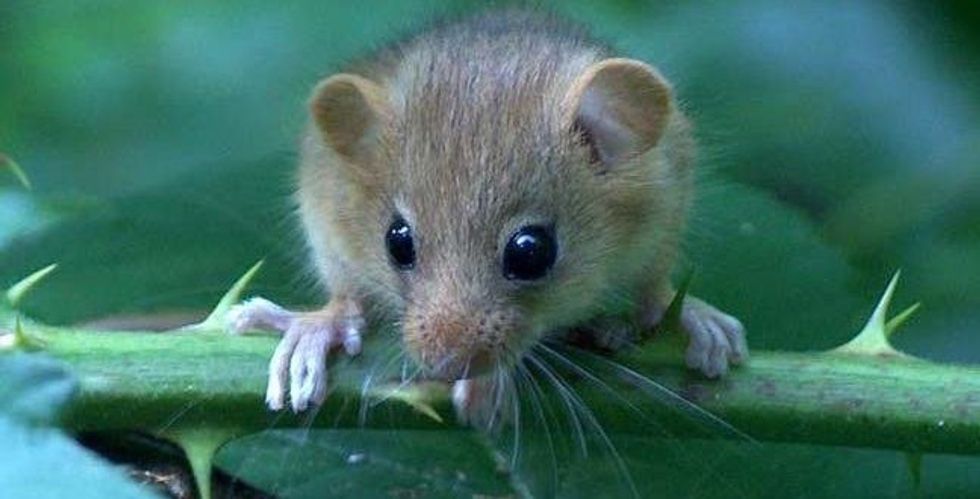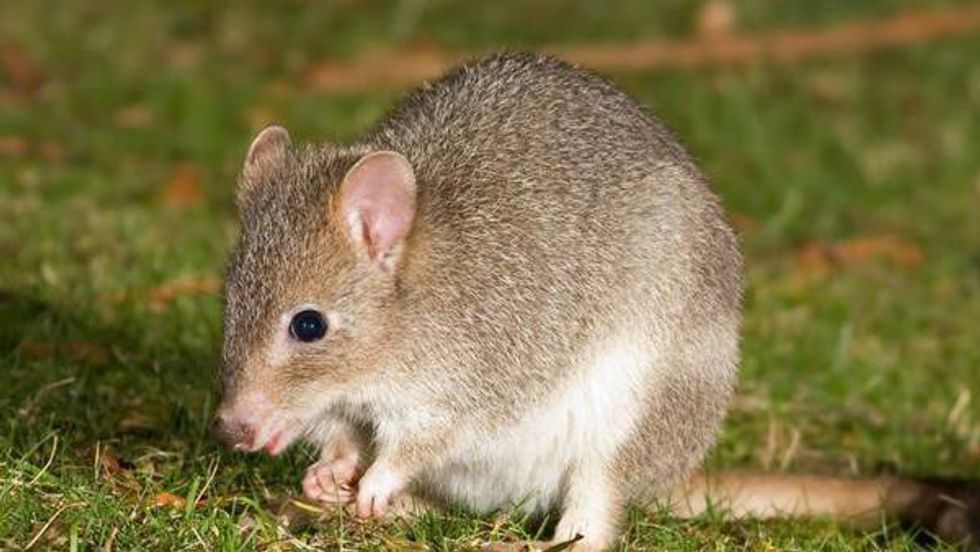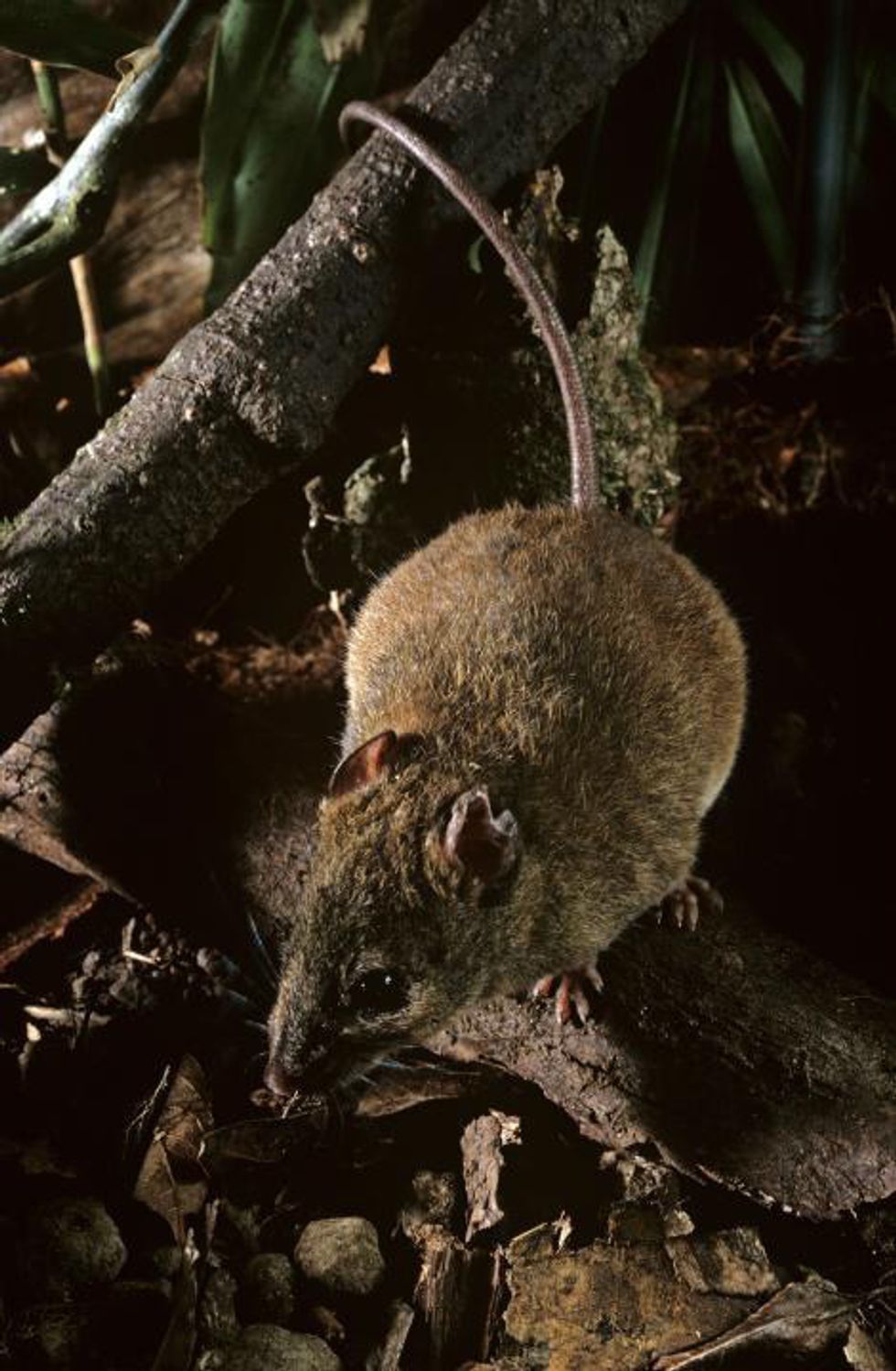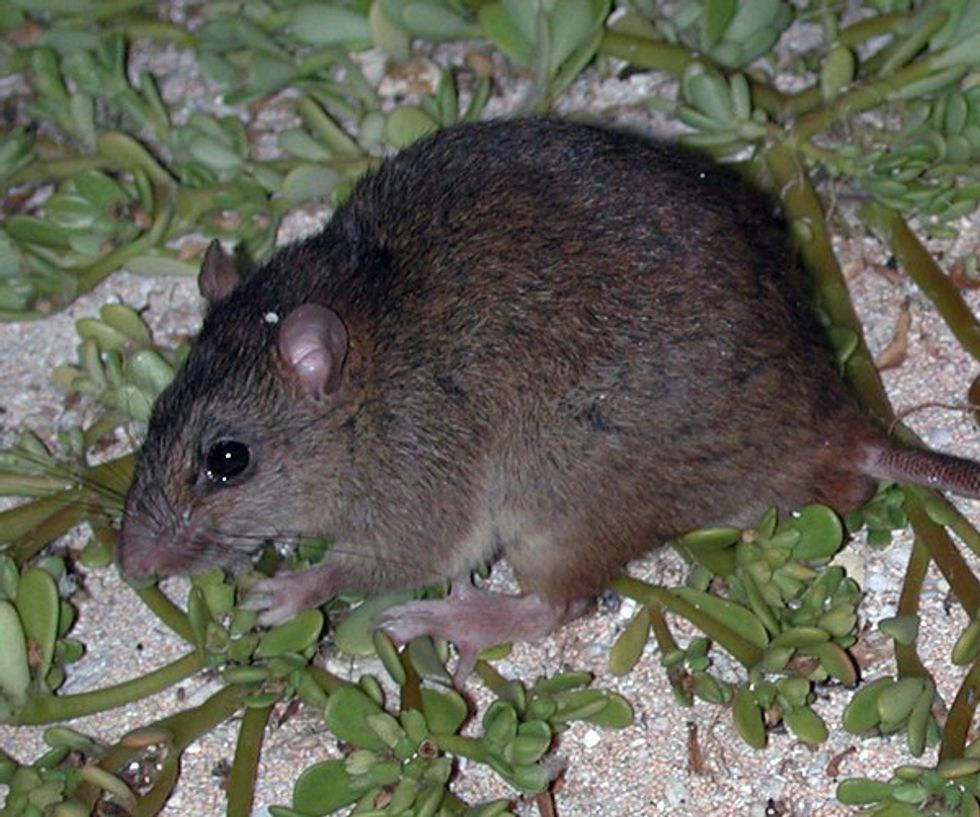Meet the Bramble Cay melomys (Melomys rubicola). Melomys are a species of rodent in the family Muridae. This species is endemic and known only to inhabit a small island called Bramble Cay or its native name, Maizab Kaur. The melomys are the only species of mammal to naturally occur on the island, but seabird species and green sea turtles also utilize the island seasonally for nesting. Earlier this month, a report out of the University of Queensland declared the species extinct, likely due to the effects of anthropogenic (human-caused) climate change.
Bramble Cay is a tiny island (only 0.156mi by 0.104mi) in the northeastern edge of the Torres Strait off the coasts of Papua New Guinea and Queensland, Australia. Its elevation is only three meters (roughly 10 feet) above sea level at high tide. Though it is comprised mostly of sand, only 4.3 acres out of a total 8.9 acres is covered with grass and low vegetation. This grassy area would be the primary habitat for the Bramble Cay melomys.
(Bramble Cay. Source: australiangeographic.com.au)
The report describes a survey taken from August to September 2014. The survey was extremely thorough, and involved the use of 900 small mammal trap-nights, 60 camera trap-nights and two hours of active daytime searches. No melomys were sighted or trapped, physically or by camera. This has lead the research team to report and request that the Bramble Cay melomys be officially declared extinct by Australian federal government agencies, as well as Critically Endangered with the tag "Possibly Extinct" by the IUCN Redlist. The latter categorization would be temporary while researchers search for other potential Bramble Cay melomys populations. While they are doubtful of any other populations, investigations will be carried out on the Fly River region of Papua New Guinea.
The last known sighting was recorded as an anecdotal account by a professional fisherman. The fisherman claims to have last seen the "rats" as he described them, in 2009. The researchers estimate based on weather data and island mapping that it is likely the animals went extinct in 2011.
(Source: news.nationalgeographic.com)
In addition to describing the melomys population status, the researchers also described the cause of the animals' demise. The report points to anthropogenic climate change as the root of the melomys's extinction. Bramble Cay's size, composition and elevation makes the island vulnerable to extreme climatic changes. Oceanic inundation, where the entire island or a significant portion of the island is covered in sea water, as a consequence of climate change would pose a direct threat to both individual animals as well as the vegetative food source of the animals.
The global sea level rise has been documented at nearly 20 centimeters from 1901 to 2010. According to National Geographic, such a rate of change has not occurred in the past 6,000 years. In the Torres Strait particularly, sea level has risen at "nearly twice the global average rate between 1993 and 2014." Such a dramatic rise, combined with increased severity of storms leads to more frequent inundation of Bramble Cay as well as larger areas inundated.
(Source: ehp.qld.gov.au)
The Bramble Cay melomys has joined the list of over 320 species of animals that have gone extinct in the past 500 years due to human activity. The species is the first to go extinct due to consequences of human-caused climate change, but studies claim that as many as one in five species is threatened by climate change. If nothing is done to mitigate the effects of climate change and to conserve the habitat and species at risk, more species will soon vanish before our very eyes.

























